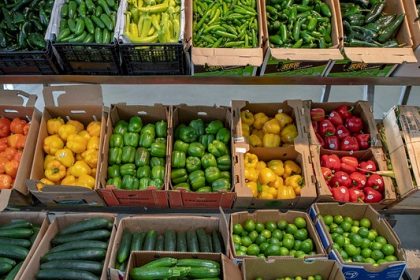
A new grant by the California Department of Food and Agriculture (CDFA) to the University of California at Davis will fund training and education for consumers around one of the most confusing grocery offerings — fermented fruits and vegetables.
“There’s a general need to educate the consumer on what fermented foods are — and they currently don’t have that education,” says Maria Marco, professor in Food Science and Technology at UC Davis (and a TFA Advisory Board member). “A definition and resources will help them be more empowered consumers and be more aware of what they’re eating. There’s a need — from kids to physicians. People need to know what these foods are.”
The grant will also fund research on the fundamental properties of fermented fruits and vegetables. Food scientists at UC Davis will study the microbial contents, characterizing the fermented foods.
The 2019 Specialty Crop Block Grant Program (SCBGP) funds 69 projects focusing on specialty crops grown in California. Grant recipients range from organizations, government entities and colleges and universities. The projects must specifically focus on increasing the sales of specialty crops through the “California Grown” identity. UC Davis received $213,051 for the grant titled: “Expanding Education and Knowledge of Fermented Fruits and Vegetables.”
“California has an important role in the U.S. because such a large number of the United States’ crops are grown here,” Marco said. “We’re the fruit bowl, the salad bowl here in the U.S.”
Of the $72.4 million awarded nationwide, California led the nation in funding with $22.9 million. The California Department of Agriculture will oversee the projects.
Fermentation Education
Core to the grant is fermentation education. UC Davis will work with Master Food Preservers across the state, training them in fermentation. The Master Food Preserver is a community volunteer program available to any individual interested in food preservation. They take a series of extensive, in-depth courses. After earning certification, they can teach the public about food preservation.
“These Master Food Preservers are getting a lot of questions lately about making fermented foods at home,” adds Marco. By providing fermentation classes to the Master Food Preservers, “we’re extending knowledge and providing information on the science of fermented foods.”
“When people start to understand the science behind the food, what the microbes are doing, that engages the public in a way based on science rather than on feeling. That will help the food producers in the end. A more informed public helps elevate their product. It shows their product is different from something just pickled with acid.
Citizen Science
Education and training will be supported by up-to-date research. This research, performed in UC Davis’ Marco lab in the Food Science & Technology department, will also be funded by SCBGP money.
“We’ll be looking at microbial contents of crops and the metabolites that they make,” Marco added. “Characterizing those foods to provide more knowledge on what’s there, it’s a move forward to determining how fermented foods can be healthy for us.”
Few studies are available that examine how fermented foods benefit or alter human health. Though fermented food research in the Marco Lab won’t involve humans, it will provide a scientific base that could evolve into a human study.
“This is important because there’s a lot of interest in this type of food and beverage. You see a lot more of these products available on the supermarket shelves. There is also an interest to be making more food at home. And there’s generally an idea that these foods are first of all tasty, but they could help our health in many, many ways. There is that belief. And there’s a risk — if these things are not made properly or if there’s some conditions where people should limit their fermented food intake. So there’s good, but if these things are not made properly there can be food safety risks.”
Food Processors
Grant research will benefit commercial processors, too. UC Davis will provide “new or improved methods for fermented food processors.”
Consistency and scale are a challenge for fermented food producers because of the live bacteria.
“Microbes have a mind of their own,” Marco said. “A lot of these foods are not originated with mass production in mind. They are usually made in small quantities. So when you scale up, it becomes an issue of quality and consistency. How do you make something that’s usually done in small quantities and sell across the country in large quantities?”
